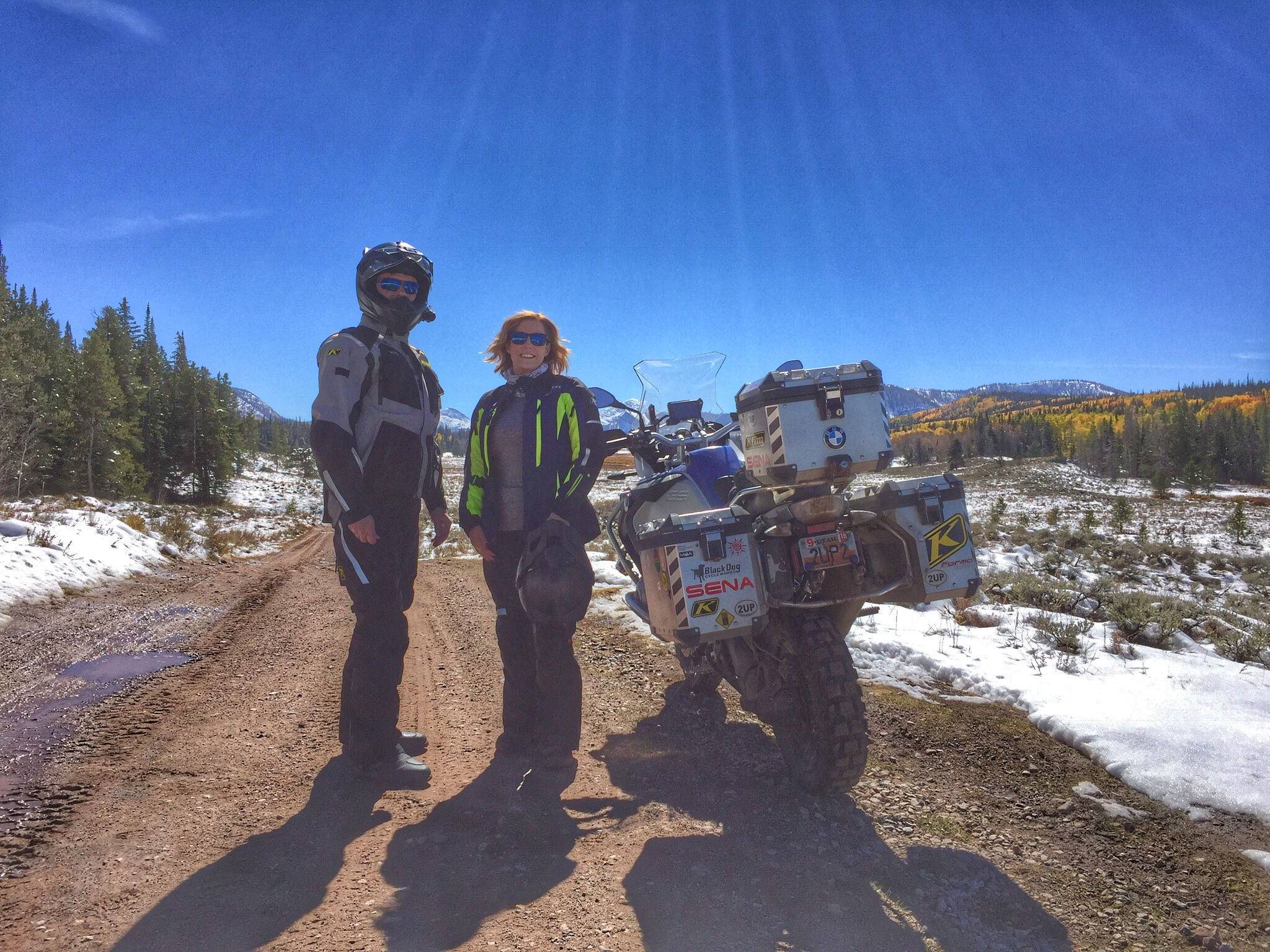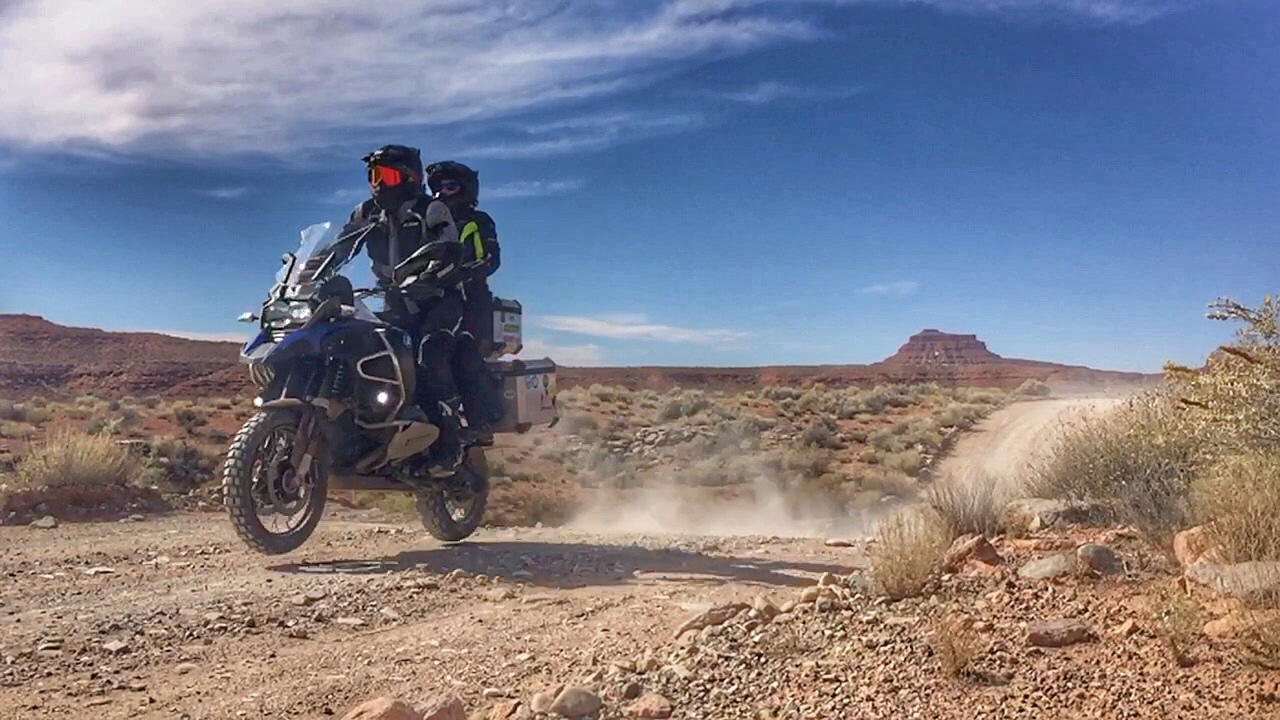Image: Kevin & Beth Young | 2uptogether
Image: Kevin & Beth Young | 2uptogether
Beth and Kevin Young, 2uptogether, are so passionate about sharing adventures with each other that they ride 2 up, even in the dirt. The've been riding for 19 years, and are advocates for short adventures, close to home. Saying that motorcycle riding has made them closer, Beth & Kevin share their experiences with photographs on social media, hoping to inspire other couples to ride together.
Twitter: 2uptogether
Facebook: www.facebook.com/2uptogether
Website: http://www.2uptogether.com
Youtube Channel: http://www.youtube.com/channel/UCw1iOZraIRbM0VYpUg7PCeg
Image: Kevin & Beth Young | 2uptogether
Rider Skills - Faster Braking
Image: Bret Tkacs | PSSOR
Skills Development Activity: Threshold braking
The average experienced rider with or without training stops around at about 70% of the capability of his/her motorcycle and roughly 30% further than the average car. Since most training standards are nearly 40% below the motorcycles capability attending traditional rider training does not help you reach the maximum braking capability your motorcycle offers. The numbers I have put on the chart below are rounded off to make things simple and are not exact. During guided training your speed should be measured with radar and then adjustments made for brake application. However in the absence of a school like this in your area this will give you a much better estimate of your ability than the scoring you may have received during any conventional motorcycle training using stopwatch/distance standards.
Bret Tkacs - Instructor
Setup:
1. Mark off a braking area up to 50’ (15 meters) with chalk on good asphalt or pavement.
2. Make your “begin braking here” point with an easy to see marker such as a bottle or large cone.
3. Check your speedometer accuracy against a GPS or phone app (speedometers or commonly 10% optimistic on speed giving you the impression you stop better than you do)
4. Practice steady approach speeds (each speed on the chart.
5. Have a fellow rider observe you as you practice braking at your “begin braking here” point to ensure you do not begin slowing or braking early.
The Drill:
1. Approach the “begin braking here” point at the speed on the chart, do not slow or brake before the point.
2. When the markers disappear from your peripheral view then begin braking stopping in the shortest distance you safety can.
3. Put down your side stand and take the distance to the leading edge of your tire and compare it against the chart.
4. Do not move up to the next speed until you are relaxed and consistent at the lower speeds.
5. To get a truly accurate measure or to safely learn to brake from speeds higher the listed below it is recommended to work with professional instructors training in this type of skill development such as Puget Sound Safety’s; Advanced Street Skills program (pssnw.com)
Music by Jason Shaw at www.audionautix.com









